Faculty of Humanities at Sadjad University began its educational and research activities in September 2020 after obtaining permission from the Council for the Expansion of Higher Education of the Ministry of Science, Research, and Technology to establish two majors in Sports Sciences and Industrial Management.
The Faculty of Humanities operates in line with the mission of training efficient, thoughtful, and entrepreneurial human capital in various fields and within the framework of programs based on education, research, and social responsibility. The educational, research, cultural, and executive activities of this faculty are as follows:
- Theoretical and practical training of students according to the approved program
- Conducting practical research based on the economic, social, and technological needs of the country within the framework of the university's programs
- Holding scientific seminars and conferences through cooperation with relevant university officials
- Providing educational and non-educational facilities for students in this faculty
- Establishing scientific and educational relations with experts and universities in Iran and abroad through cooperation with relevant university officials
- Providing various educational, student, library services, and other services in cooperation with relevant units
The Faculty of Humanities at Sadjad University is striving to play its role in the development of the country by providing high-quality education and conducting applied research, and to be recognized as one of the leading scientific and educational centers in the region.
The Faculty of Humanities at Sadjad University was established in 2020 with the goal of expanding the university's programs and meeting the need for applied majors. The faculty began its activity with the disciplines of Industrial Management and Sports Sciences, and in 2022, two disciplines of Law and Teaching English as a Foreign Language (TEFL) were added. In 2023, the discipline of psychology was also added to other disciplines of this faculty. With the university's development plan, this faculty will be further expanded in the coming years with applied majors that can meet the needs of the society.
The Faculty of Humanities currently has 5 academic majors:
- Industrial Management
- Sports Sciences
- Law
- Teaching English as a Foreign Language (TEFL)
- Psychology
Dr. Naser Ali Mansourian
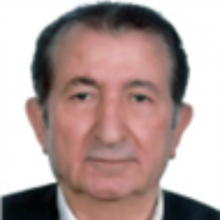
email: naser.mansourian@sadjad.ac.ir
telephone: +980(51)36029000-215
Dr. Monireh Ahmadi Manesh
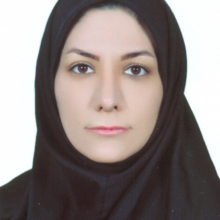
telephone: +98(51)36029000-126
Mr. Abolghasem Poozesh
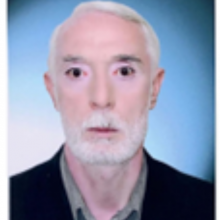
email: a.poozesh@gmail.com
telephone: +98(51)36029000-208
Dr. Samaneh Farahati
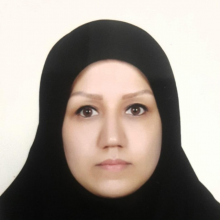
email: samaneh.farahati@gmail.com
telephone: +98(51)36029000-218
Ms. Hadiseh Khavar
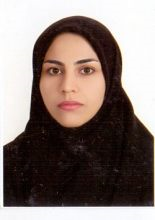
telephone: +98(51)36029000-121
English Language Teaching (ELT)
The importance of learning English language is undeniable in today's world. Using authentic scientific resources, applying new technologies, participating in the international arena, and establishing and strengthening constructive international relations with other nations are just a few examples of the applications of English in the world today. Obviously, teaching this language correctly is also important.
It is necessary for students in this field to be familiar with the latest scientific theories and methods of language teaching, classroom management, the preparation and development of lesson materials, language testing, and online educational resources and the appropriate way to use them. Therefore, students learn the theoretical and practical foundations of language teaching, the development of lesson materials, language testing, classroom management, and the use of new technologies for efficient English language teaching.
English Language Teaching (ELT) is one of the three majors (English language teaching, English literature, and English translation) in the English language program at the bachelor's level. It is concerned with the teaching of English for different age groups through effective and creative methods.
ELT majors also study and conduct research into issues related to language learning, for example, the problems and obstacles of language learning and how to solve them. ELT is a field that is actually a fusion of several other fields including sociology and psychology are discussed in ELT, as well as issues such as bilingualism, discourse analysis, second language learning, and language policy and planning and uses the concepts and principles of those fields.
The goal of the program of Bachelor of Arts in ELT is to train teachers who, with the theoretical knowledge and practical skills related to education, acquire the ability and mastery of teaching English in a four-year period. By relying on their positive attitude toward their work, ELT graduates should also be able to effectively teach English and make language learners interested in learning this language.
ELT majors are prepared to work as teachers, trainers, and researchers in the field of English language teaching. They can also work as translators. They can work in ministries and tourism tours as translators. However, as mentioned previously, the main focus of this field of study is teaching. Teaching in schools, universities, and setting up a language institute are among the main job positions in this field. They also have the skills and knowledge to work in a variety of other fields, such as business, government, and the non-profit sector.
Industrial Management
Industrial management is a sub-discipline of management that aims to develop the skills necessary to use quantitative and mathematical techniques to solve business administration problems and implement the production process from the product design, quality development, product commercialization, and ultimately its market launch.
Graduates of this program will be able to work in the production management, technical protection administration, and quality control of goods, project management and control, and also solve management problems in the form of quantitative projects and decision-making in various private and government organizations. If the students of industrial management are familiar with the theoretical issues of industrial management, as well as the new fields of industrial management and its place in the field of practice, they will be able to adapt to the needs of the labor market.
One of the main issues in the management of economic enterprises as one of the main axes of the Iranian-Islamic model is removing the deficiencies in the skills and attitudes of managers and experts. Managers and experts in the field of industrial management also try to use soft management attitudes along with quantitative and hard techniques in the process of community development. Therefore, the presence of industrial management graduates will lead to a reduction in the gap that dominates the use of intellectual capital in the development process.
Law is one of the most popular and in-demand fields of study in the humanities. Every year, a large number of people take the law entrance exams in the hope of becoming a lawyer and entering the vast job market in this field. On the other hand, the application of legal issues in the daily lives of the people of the society has doubled the desire to enter this field of study.
The Bachelor of Law program is one of the educational courses in the higher education system, which aims not only to improve legal knowledge, but also to train students in the field of law based on Islamic jurisprudence, Islamic-Iranian culture and custom, and new legal issues. It also aims to train individuals who have adequate abilities in legal advocacy, consulting and expertise in the Judiciary and can meet the judicial needs of the judiciary, ministries, executive bodies and the private sector and help protect the rights of individuals at the national and international levels.
The field of law is offered at the M.A. and Ph.D. levels in a variety of specializations, such as private law, criminal law, criminology, public law, international law, etc., which examine the broad theoretical and practical dimensions of legal specializations.
Movement and motion are characteristics of human life and have a root in human nature. They are factors for human growth, health, and vitality. Human beings need to move and are compelled to move and preventing them from moving not only stops growth but also causes depression, the emergence of abnormal behaviors, and the loss of the joy and excitement of life. Therefore, physical education and sports are an integral part of education and a means to achieve the mental health of the young generation. In this way, it can be said that physical education and sports are one of the main bases of education in every society. As an educational method, it is a means of balancing and developing the existential dimensions of human beings in their lives. Today, the knowledge of physical education and sports sciences has found a very valuable and important place in the education system of the world.
The goal of establishing the sports sciences program is to train efficient individuals who can take effective steps in the advancement and expansion of the frontiers of knowledge in the field of sports science by innovating in various educational, research, planning and implementation, guidance and supervision. This discipline is linked to the health and well-being of society, and its effect and role in the physical and mental health of individuals in society is undeniable. Therefore, the training of committed and specialized human resources in this field is essential. The following are some of the abilities of sports sciences graduates and in fact the reasons why establishing this discipline in today's society is necessary:
·
Graduates of sports sciences programs can be active in the field of talent identification in various sports, which is necessity in today's sport, and provide the ground for the advancement of championship sports in the country.
·
They can also teach physical education in schools and create a positive attitude toward the values of physical education and its impact on the development of students’ cognitive and emotional dimensions.
·
One of the goals of sports sciences is to train special individuals such as disabled and veterans, the elderly, special children (ADHD, autism, etc.) and rehabilitation after sports injuries and implementing corrective movement programs in medical centers.
·
In addition to these, guidance and planning of exercises to maintain public health and conducting research into various branches of sport are among the abilities of sports sciences graduates.
